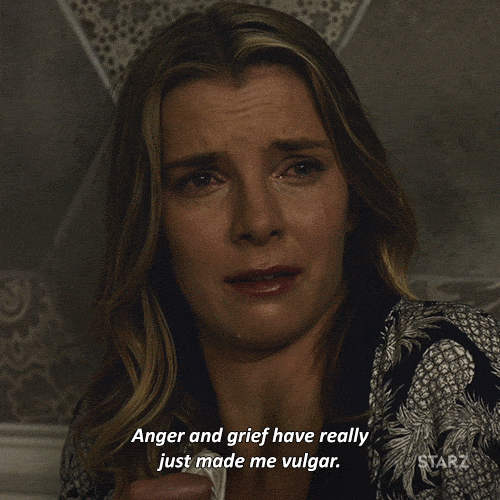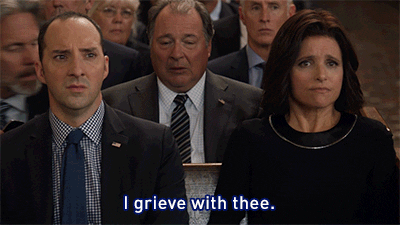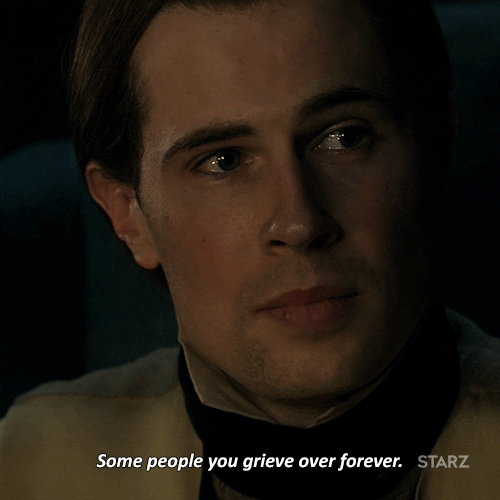It’s a tough time to be a human. The coronavirus pandemic has hit us all hard, forcing us into isolation and, in some cases, unemployment. Police brutality has hit a fever pitch and people all over the world are mourning loved ones lost to violence. If you feel down and hopeless right about now, we don’t blame you. With all this societal tumult, you might have noticed a strange sensation — an emptiness or a sense of despair. You may be wondering what the point of it all is. It’s very possible you’re grieving — for your former life, for your previously perfectly planned future, for the state of the world. This might be a new experience for you (and if it is, consider yourself lucky). But it isn’t easy. That’s why we’ve crafted this beginner’s guide to grief. We’ll get through this — together.
Cover Photo: Funwithfood (Getty Images)
Dead Wrong: 10 Things You Should Never Say When Someone Dies
Deep Dive: Is Porn Ruining Your Sex Life?
Visit the Mandatory Shop for great deals on your very own Mandatory merch.
Follow Mandatory on Facebook, Twitter, and Instagram.
Grief Guide
-
Grief is not just about loss.

When people think of grief, they often assume it relates to a death. That isn't always the case. Grief accompanies any kind of loss -- of a relationship, a job, a dream. The common factor is some kind of an ending.
-
Grief is healthy.

Feeling upset about a loss doesn't mean there's anything wrong with you; in fact, it means you're human. The symptoms and emotions of grief can occur (and reoccur) for years after a loss and still be considered normal.
-
Grief manifests differently for everyone.

Grief isn't just uncontrollable crying. While weeping may be one of the ways you experience grief, it can also manifest as shock, anger, sadness, longing, guilt, or anxiety. These are all normal and to be expected following a loss.
-
Grief demands your time and attention.

Some people mistakenly think that if they ignore a loss, or their feelings about it, it will just fade into the background. Yeah, right. Grief demands your time and attention; if you try to sweep it under the rug now, you're going to have a bigger mess to clean up later on. Make sure you carve out some time for grief in your life, be it through PTO or by dedicating time every day to mourn, remember, or honor your loss. If you don't do it now, your grief will come out eventually, likely in a sideways or destructive form.
-
Grief needs an outlet.

Don't just stew in your grief. Use it. Those uncomfortable feelings should be shared and processed, whether that means talking about them in a support group or with friends, making art, or performing rituals like creating an altar or making a memorial. Grieving is very much a verb and your participation is required.
-
Grief doesn’t always go away for good.

American society often expects people to "get over it" within a period of two weeks. Grief doesn't work like that. It doesn't follow a time table. People may grieve a loss continuously for a year, or for a longer period intermittently. Grief can ebb and flow. It might subside for a while and then get triggered again by an anniversary, a holiday, or something as seemingly innocuous as a song. Don't expect grief to be neat and tidy. Like a chronic health condition, it may be manageable most of the time and then suddenly flare up.
-
There are many resources that can help you grieve.

You don't have to grieve alone. There are specialists and experts in grief that can guide you through it, whether that means a grief counselor, self-help books on grieving, or films that examine grief. For as long as people have been alive, they've been grieving; take a cue from those who have experienced this before and learn from them.
-
Grief can be transformative.

Loss sucks, but it doesn't have to suck you dry. If you can find meaning in the loss you’ve experienced, you can make something good come out of it. Don’t just go through it, grow through it. That's what we call "good grief."







